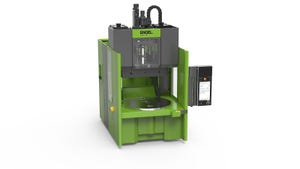Who caused the skills gap?
We continue to hear a lot about the existence of a skills gap in manufacturing. A new survey, 2014 Manufacturing Training Trends, was recently released by Seminars for Engineers showing that a lack of training is the biggest obstacle to manufacturing quality success today. Twenty-seven percent of respondents to this survey cited lack of training; 20% cited outmoded equipment; 16% cited poor quality control; and 14% cited company morale.
April 22, 2014
We continue to hear a lot about the existence of a skills gap in manufacturing. A new survey, 2014 Manufacturing Training Trends, was recently released by Seminars for Engineers showing that a lack of training is the biggest obstacle to manufacturing quality success today. Twenty-seven percent of respondents to this survey cited lack of training; 20% cited outmoded equipment; 16% cited poor quality control; and 14% cited company morale.
While 89% said their company offers opportunities to attend technical or engineering-related seminars/workshops, 81% said they wished their companies offered more such opportunities. More/better training would result in improved productivity, according to respondents (34%), fewer defects in manufacturing (27%), better morale (20%), and greater satisfaction with management (20%).
In-person seminars continue to be the most common format offered for seminars and workshops (54%). Online or webinars are the training format for 46% of respondents. When asked which seminar/workshop format was most valuable, 64% said "in-person seminars," 27% said "about the same," and only 9% preferred an online/webinar platform. Eighty-seven percent of respondents said they would or might benefit from technical seminars/workshops held on-site at their company by outside subject-matter experts.
This survey is interesting from the standpoint that while many technical and engineering employees in the plastics industry today (processing, mold making, quality, etc.) might benefit from technical seminars, there still seems to be a reluctance for companies to foot the bill. In the plastics industry, I can see where these people would benefit most from having someone come into the plant to hold the seminar because they would be doing hands-on training on the equipment they work with every day.
But, talk to people in this industry who give training seminars and workshops for a living, and they'll tell you that it's tough to get people to participate. The number one reason: everyone is too busy.
In a recent Automation World article, Helmuth Ludwig, CEO of Siemens' Industry Sector USA, who spoke at the second annual Manufacturing in America Symposium hosted by Siemens and Electro-Matic Products, was quoted telling the audience, "It's not a skills gap. It's a training gap." Ludwig pointed out that this terminology is wrong. "Having a skills gap means the individual is responsible. But young people are not responsible for this-we are," noted the March 26, 2014, article by David Greenfield, Director of Content/Editor-in-Chief.
Just last week it was announced that the U.S. has earmarked $600 million to update job training and business and educational facilities to support skills employers need now or will need in the near future. $500 million is allocated to a competitive process that will identify the best programs linking community colleges with businesses, and $100 million will be spent on expanding apprenticeship programs.
There are already a number of programs out there for mold making apprentices, many of them developed by companies on their own because formal programs have gone away over the years. And obviously that's the best way to do it: at the grass roots level, locally with industry establishing the knowledge base and criteria for the program, and community colleges and technical schools lending a helping hand with the academic programs, such as math and science. Over the past decade, I've been invited to visit a number of these colleges and technical schools and I've been impressed with what I've seen. They've come a long way.
However, my take is that one of the biggest obstacles to overcoming lack of training for manufacturing jobs is lack of parental knowledge about the types of good-paying jobs available for their young students. And proponents of manufacturing, as well as others, are finally saying it: Not everyone needs a four-year college education to be successful.
About the Author(s)
You May Also Like




